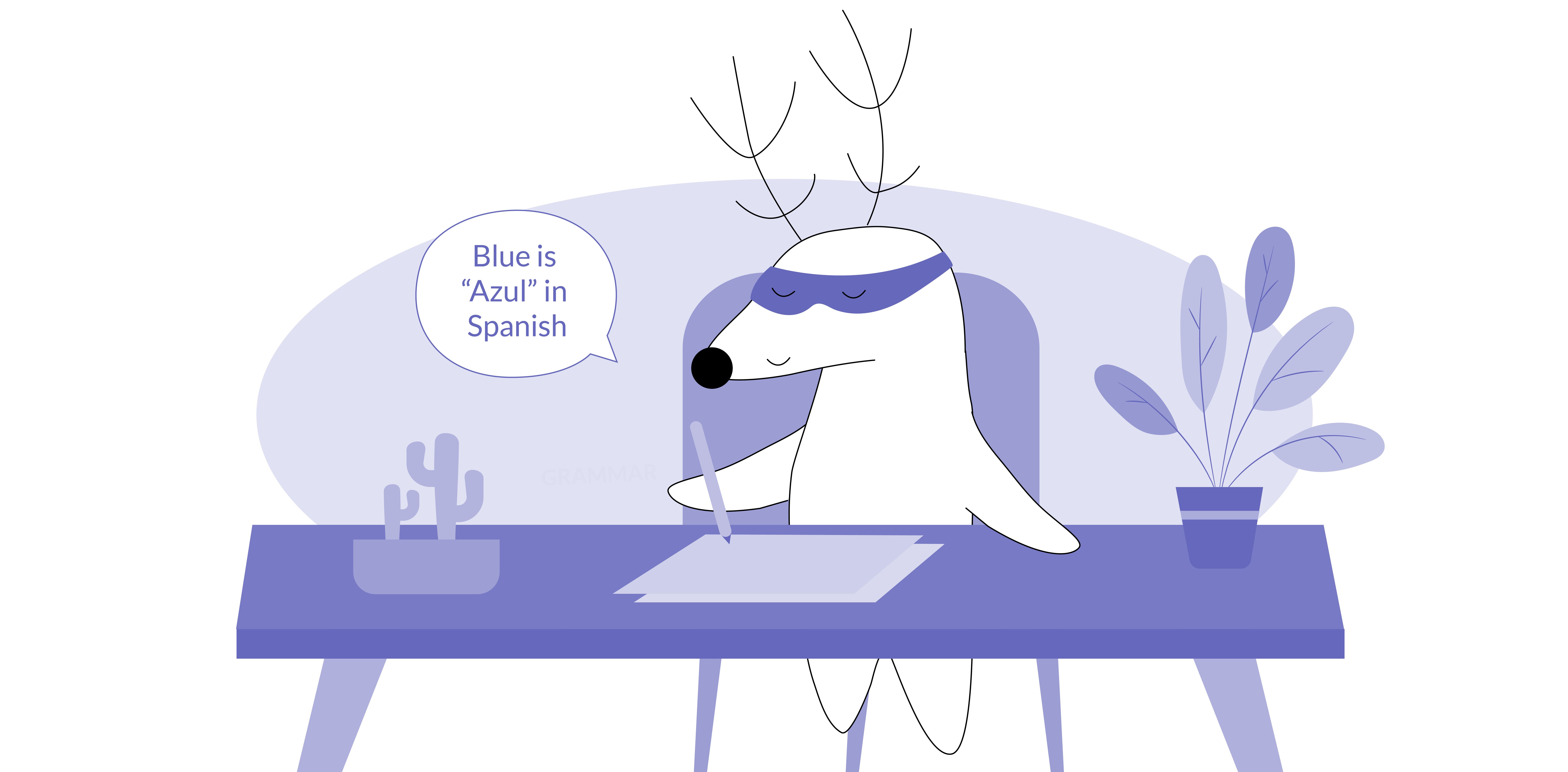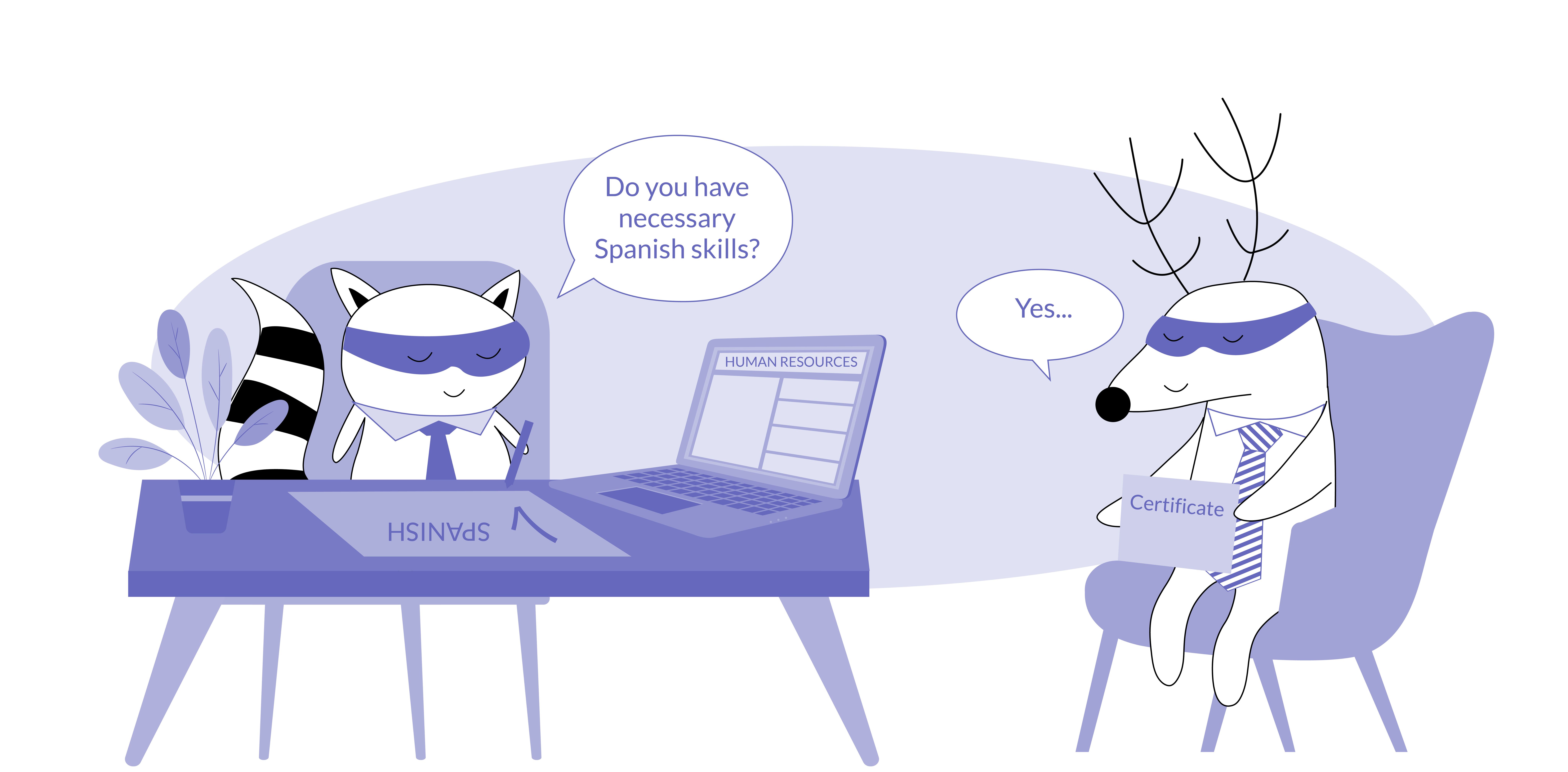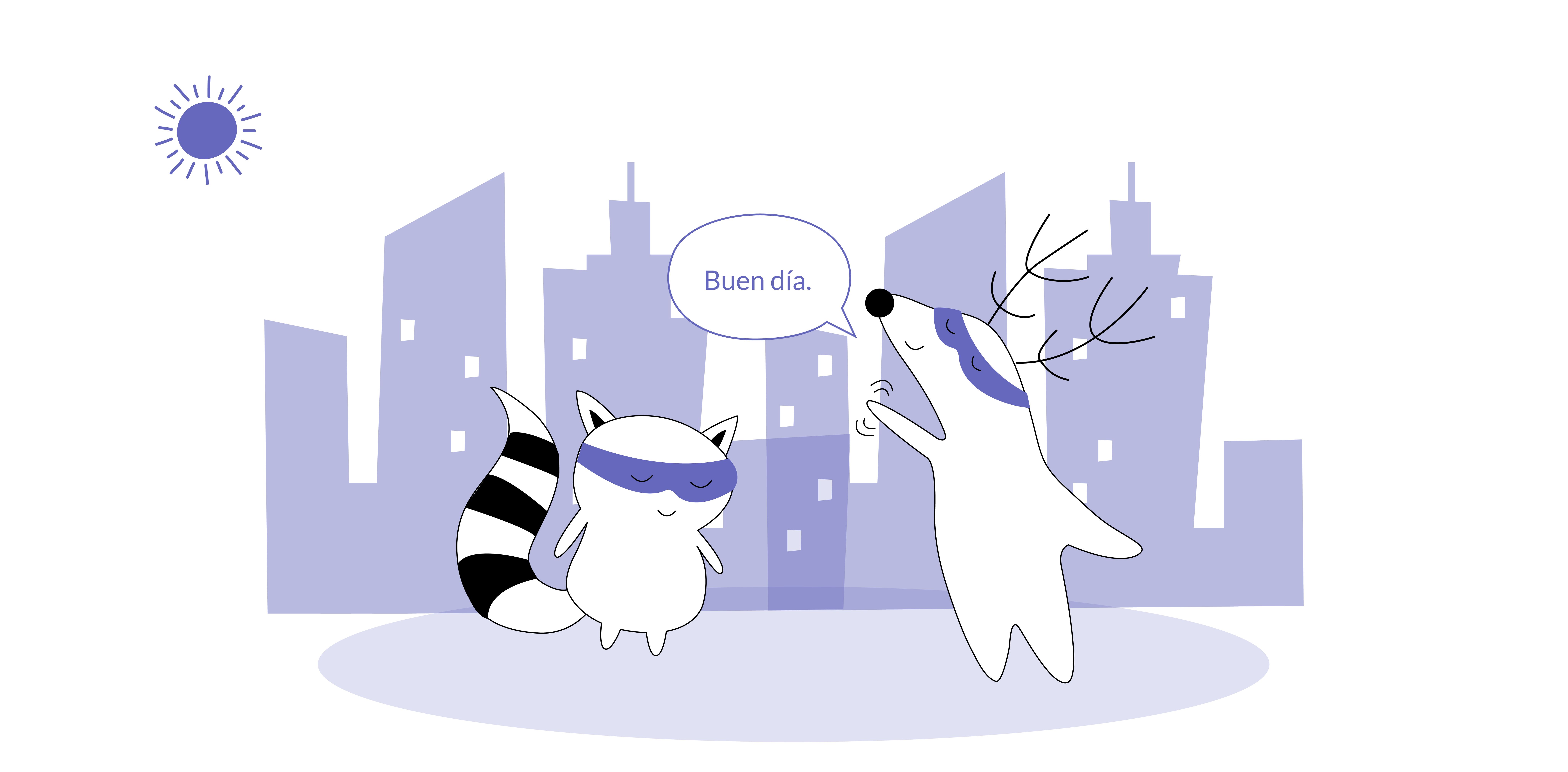
Embarking on the journey of learning Spanish is like setting sail on a vibrant sea of culture and connections. As a beginner, imagine the smiles you'll receive when you weave a heartfelt "Have a nice day!" into your conversations with native speakers. This gesture not only opens doors to new friendships but also immerses you in the rhythm of daily life, expressed in a rich and expressive language.
In this guide, we will navigate the cheerful expressions of well-wishing that color everyday interactions in Spanish-speaking communities. Whether you're taking your first steps in Spanish or simply refining what you already know, mastering these friendly phrases will add warmth to your encounters and deepen your appreciation for the nuances of the Spanish language.
Learn Spanish with Langster
Buen Día
Spanish
English
Buen día.
Good day.
While buen día might seem simple, it packs a powerful punch of courtesy and kindness. This phrase is versatile, suitable for both formal and casual settings, and it can be used at any time throughout the daylight hours, from an early morning run-in with a neighbor to a midday encounter in the workplace. It's also a very popular greeting.
Adopting this phrase in your daily use is more than just a form of politeness—it's an expression of hope and positivity that sets a welcoming tone for the interaction to follow.
Using Buen Día in Various Contexts
Whether you're navigating the bustling streets of a city or enjoying the tranquil beauty of the countryside, knowing how to use Buen día in context can make all the difference in your interactions. Here are three examples exemplifying its use:
Spanish
English
Buen día, ¿a qué dirección vamos?
Good day, which direction are we going?
Buen día, ¿cuánto cuesta este mantel?
Good day, how much is this tablecloth?
Buen día a todos, estoy emocionado de aprender con ustedes.
Good day everyone, I'm excited to learn with you.
Que Tengas un Buen Día
Spanish
English
Que tengas un buen día.
Have a good day.
Que tengas buen día or tener un buen día is a warm, affectionate variant that translates literally to "may you have a good day.” Often heard in the warm embraces of Mexican culture and echoing through Central America, this expression places a personalized touch on the well-wishing, bestowing a sense of sincere care and attention to the recipient’s day.
While both buen día and que tengas buen día (or even que tengas lindo día) convey similar sentiments, the latter carries an additional layer of heartfelt intention, making it ideal for use among friends, family, or acquaintances when there is a desire to communicate earnest goodwill while saying hasta luego (goodbye).
Examples
Spanish
English
Chau, que tengas buen día.
Bye, may you have a good day.
Estoy cansada pero ellos no así que nos quedamos. Que tengas buen día.
I'm tired but they are not, so we'll stay. Have a nice day!
Gracias Por su Tiempo
Spanish
English
Gracias por su tiempo.
Thank you for your time.
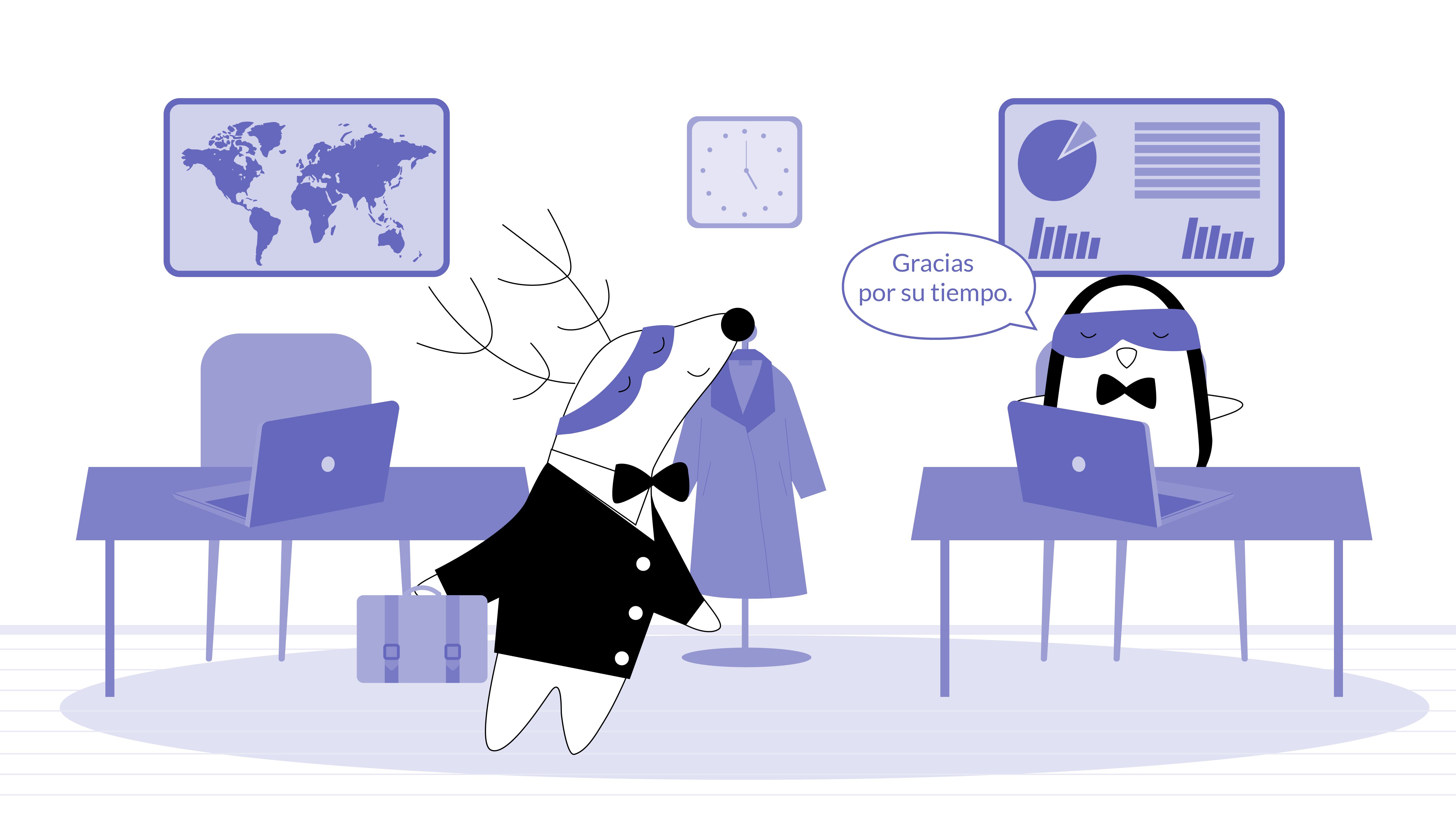
Expressing gratitude is not just a polite gesture; it's the glue that binds social interactions with respect and recognition. This phrase, which translates to "Thank you for your time," resonates deeply in Spanish-speaking cultures.
It acknowledges the effort and attention someone has dedicated to you, be it in professional settings after a meeting, a casual conversation, or when someone has gone out of their way to assist you.
Including this phrase in your language repertoire is both a sign of respect and an investment in building lasting relationships. Here's how it might be woven into real-life interactions:
Examples
Spanish
English
Gracias por su tiempo, su ayuda ha sido invaluable.
Thank you for your time, your help has been invaluable.
Gracias por su tiempo, ¿podría explicarme otra vez el process?
Thank you for your time, could you explain the process to me once more?
Gracias por su tiempo, ha sido un placer hablar con usted.
Thank you for your time, it has been a pleasure speaking with you.
Gracias Por su Atención
Spanish
English
Gracias por su atención.
Thank you for your attention.
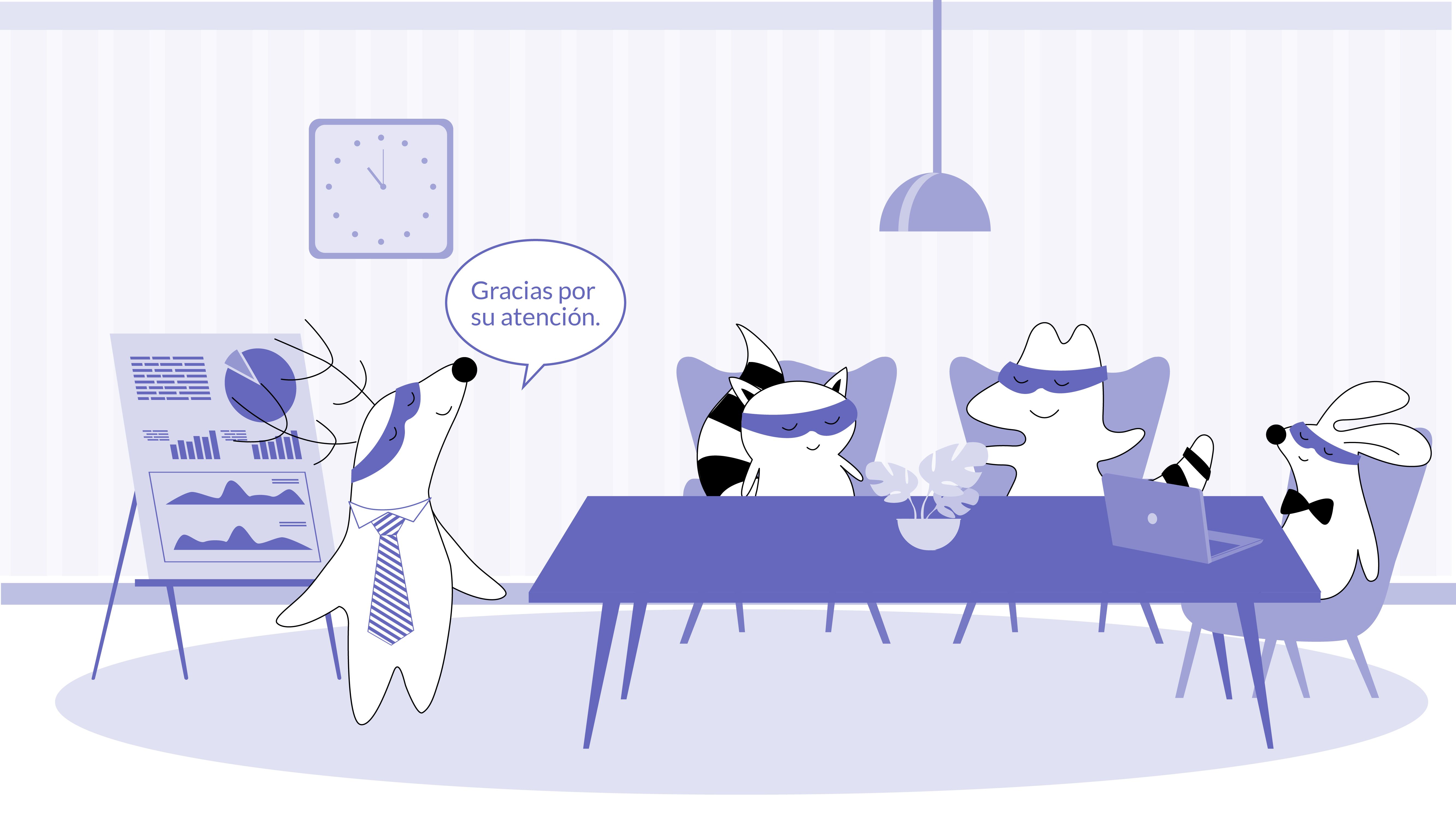
Gratitude extends its roots deep into the heart of personal interactions, and this phrase beautifully captures its essence. It's more than a mere thank-you; it's an acknowledgment of the individual's engagement and time spent being present with you.
In the bustling rhythm of life, where everyone's time is precious and often scarce, this phrase elevates the standard of politeness by honoring the other person's investment in the interaction.
Examples
Spanish
English
Gracias por su atención, espero que nuestra discusión haya sido esclarecedora.
Thank you for your attention, I hope our discussion has been enlightening.
Gracias por su atención durante la presentación; su interés es muy apreciado.
Thank you for your attention during the presentation; your interest is greatly appreciated.
Gracias por su atención, ¿le gustaría que le envíe más información?
Thank you for your attention, would you like me to send you more information?
Gracias Por su Cooperación
Spanish
English
Gracias por su cooperación.
Thank you for your cooperation.
The phrase gracias por su cooperación expresses more than just casual thankfulness, as gracias por su compra would; it reflects a deeper appreciation for the collaborative effort or compliance offered by others. It's most impactful in situations where collective participation is essential for achieving a common goal.
Whether it’s part of a team project, during community events, or in support of administrative procedures, this acknowledgment of cooperative behavior fosters a sense of community and teamwork.
Examples
Spanish
English
Gracias por su cooperación en mantener el parque limpio, su esfuerzo mantiene nuestro espacio verde agradable para todos.
Thank you for your cooperation in keeping the park clean; your efforts keep our green space enjoyable for everyone.
Gracias por su cooperación durante el simulacro de emergencia; su participación es crucial para nuestra seguridad.
Thank you for your cooperation during the emergency drill; your participation is crucial for our safety.
Gracias por su cooperación al rellenar los formularios a tiempo, esto agiliza el proceso para todos.
Thank you for your cooperation in filling out the forms on time, this expedites the process for everyone.
Que te Vaya Bien
Spanish
English
Que te vaya bien.
I wish you the best.
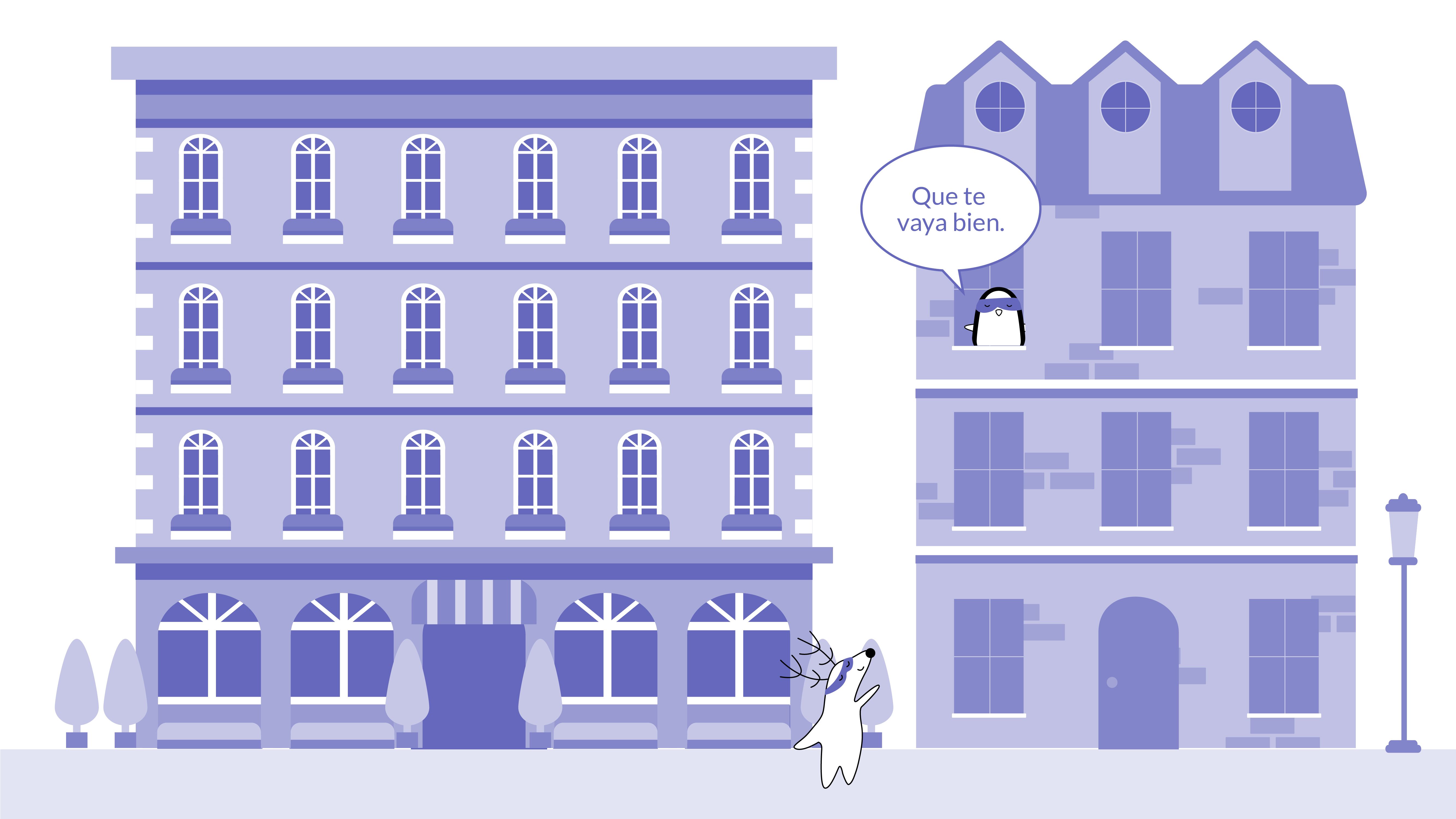
Wishing someone well as they go about their endeavors with Que te vaya bien (or le vaya bien, if you want to be formal) carries a heartfelt sentiment of hope for their success and well-being.
It's a versatile phrase that can be used effectively in numerous social and professional contexts to convey your genuine desire for the other person's advantageous outcome.
Examples
Spanish
English
Que te vaya bien en tu nuevo trabajo, estoy seguro de que harás un excelente trabajo.
I wish you the best in your new job, I am confident you will do excellent work.
Que te vaya bien en tu viaje, que tengas experiencias maravillosas.
I hope your trip goes well, may you have wonderful experiences.
Que te vaya bien en el examen, estudia duro y confía en tus conocimientos.
I hope you do well on the exam, study hard and trust your knowledge.
Que Tengas Bonito Día
Spanish
English
Que tengas un bonito día.
Have a nice day.
The phrase que tengas bonito día is a delightful way to sprinkle a bit of cheerfulness into someone's routine. This Spanish expression goes beyond the basic pleasantries; it's a dose of sunshine, a wish for their day to be not just good, but beautifully good.
In a world where days can be monotonous, your words can paint their day with bright strokes of optimism and joy.
Examples
Spanish
English
Que tengas bonito día, y que cada momento te brinde una razón para sonreír.
Have a beautiful day, and may each moment offer you a reason to smile.
Que tengas bonito día, y que encuentres paz y felicidad en las pequeñas cosas.
Have a beautiful day, and may you find peace and happiness in the little things.
**Que tengas bonito día, que la alegría te acompañe en cada paso que das.
Have a beautiful day, and may joy accompany you with every step you take.
Conclusion

Armed with these phrases, you're ready to add a sprinkle of kindness to someone's day in Spanish. Remember that language learning is not solely about grammar and vocabulary; it's also about the connections you build through words.
As we conclude this linguistic journey, it's evident that the phrases we've covered do more than convey messages—they weave a fabric of cultural understanding and interpersonal warmth.
By using expressions like gracias por su atención and que tengas bonito día, you're not just speaking a language; you're embracing its essence and fostering genuine relationships.
To bring the vibrancy of Spanish into your daily life and elevate your communication skills, we warmly invite you to explore our app, Langster.
This digital space is crafted to enhance your language-learning experience, offering interactive exercises, real-life dialogue simulations, and personalized feedback to help you fully grasp these impactful expressions. Download Langster today, and transform each encounter into a heartfelt exchange.
Learn Spanish with Langster








